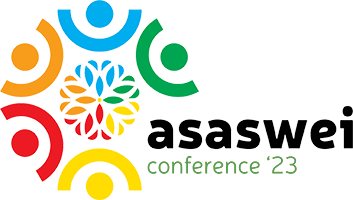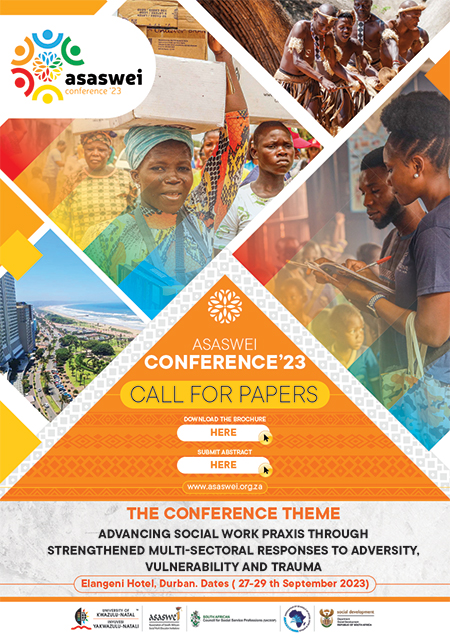The View page displays a submission's general information and data. Watch video
Submission information
Submission Number: 141
Submission ID: 221
Submission UUID: 264713a0-ed76-4aea-8fb6-b7a614f9c9fc
Submission URI: /2023/abstracts
Created: Fri, 07/21/2023 - 13:11
Completed: Fri, 07/21/2023 - 14:30
Changed: Wed, 08/16/2023 - 16:27
Remote IP address: 168.167.81.89
Submitted by: Anonymous
Language: English
Is draft: No
Current page: Complete
Webform: Abstract
Presenters
Mr.
Nwaigwe
Charles
University of Botswana
Charles Nwaigwe is a dedicated professional with a background in the NGO sector, education, and social work. Born in Port Harcourt, River State, he has risen through the ranks in a non-governmental organization, from a data entry clerk to a monitoring and evaluation advisor. Charles holds a Bachelor of Science in education from the University of Abuja, Nigeria, and is currently pursuing a graduate degree in social work, focusing on youth and community practice at the University of Botswana. With a passion for making a positive impact, he continues to inspire others and contribute meaningfully to the betterment of communities.
Yes
Mr.
Nwala
Emmanuel
Development Impact Consults, Abuja, Nigeria
Emmanuel Nwala is a distinguished professional with a Master's in Public Health and a prominent figure in the non-governmental organization (NGO) sector. With a successful career trajectory within the NGO, he has climbed the ranks to become a senior management team member. Emmanuel's expertise as a renowned researcher has been instrumental in facilitating various projects focusing on maternal and child health, gender-based violence (GBV), governance, and social accountability. His relentless dedication to making a difference has earned him admiration, and his contributions have positively impacted countless lives and communities. He is a capacity builder per excellence in the NGO community.
Yes
Prof.
Dolly
Mogomotsi Ntseane
University of Botswana
Dolly Mogomotsi Ntseane is an esteemed professor of social policy at the University of Botswana. With a wealth of experience and expertise in her field, she has played a significant role in shaping the academic journeys of numerous students. As a dedicated supervisor, Dolly has guided and mentored countless students, empowering them to excel in their studies and research. Her generosity extends beyond her students, as she has also assisted colleagues within the education system in finding their professional footing. Dolly's reputation as a renowned lecturer stems from her remarkable ability to help students grasp complex concepts, particularly in research.
Abstract
Access to HIV-Testing Services Among Adolescents and Young People: Evidence to Strengthen multi-Sectoral Response
THEME 1: Promoting stakeholder partnerships that protect, support and enhance resilience during adverse events and trauma
SUB 1.2 The protection of physical and psychological health and wellbeing of children, people with disabilities, and older people through fostering safe, sustainable, and inclusive living spaces
Poster Presentation
INTRODUCTION: Despite notable progress in HIV prevention and treatment, adolescents and young people (AYP) encounter specific obstacles when accessing these vital services.
OBJECTIVE: This study aims to provide evidence-based insights to strengthen the multi-sectoral response to HIV testing services (HTS) among AYP in tertiary institutions in Nigeria.
METHODS: An exploratory qualitative study was conducted in four geopolitical zones in Nigeria, using in-depth interviews, comprising 10 participants (1-2 per campus) purposively selected from six campuses.
RESULTS: Nigerian campuses offer inadequate HTS, and barriers such as limited awareness, insufficient access to HIV prevention commodities, and suboptimal services from campus clinics deter AYPs from accessing HTS. Furthermore, there is a lack of collaboration between tertiary institutions and other sectors in addressing this health challenge.
DISCUSSION: Strengthening multi-sectoral collaboration between tertiary institutions and relevant sectors can enhance the impact of HTS among AYP. This requires a harmonized framework that prioritizes AYP on Nigerian campuses.
OBJECTIVE: This study aims to provide evidence-based insights to strengthen the multi-sectoral response to HIV testing services (HTS) among AYP in tertiary institutions in Nigeria.
METHODS: An exploratory qualitative study was conducted in four geopolitical zones in Nigeria, using in-depth interviews, comprising 10 participants (1-2 per campus) purposively selected from six campuses.
RESULTS: Nigerian campuses offer inadequate HTS, and barriers such as limited awareness, insufficient access to HIV prevention commodities, and suboptimal services from campus clinics deter AYPs from accessing HTS. Furthermore, there is a lack of collaboration between tertiary institutions and other sectors in addressing this health challenge.
DISCUSSION: Strengthening multi-sectoral collaboration between tertiary institutions and relevant sectors can enhance the impact of HTS among AYP. This requires a harmonized framework that prioritizes AYP on Nigerian campuses.
Reviewer ONE Feedback
Prof
Glynnis
Dykes
Yes
Empirical Research
Accepted
Reviewer TWO Feedback
Dr
Somaya
Abdullah
Yes
Empirical Research
Accepted

